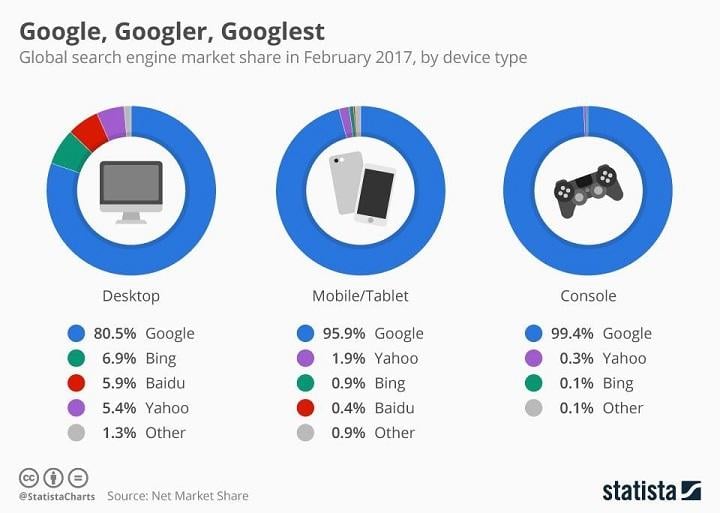
Mobile marketing is extremely powerful, but it’s easy to get stuck in a rut with techniques that don’t deliver the results you were hoping for.
If that’s the case for you, then it’s time to think outside the box and look at alternative mobile marketing strategies to help you reach more people and convert more leads. So to help you out we’ve come up with this list of six mobile marketing strategies that are super effective but that you probably haven’t considered using—either because you haven’t thought about them before or because you assume they won’t work for you.
1. Hyperlocal targeting
Hyperlocal mobile marketing strategies include techniques like geofencing. Geofencing is where you mark out a specific geographic area with a virtual “fence”: if anyone with your app installed steps into your geofenced area, it will trigger a push notification.
An example of this is when Burger King geofenced rival McDonald’s locations. When users entered the fenced area, they were sent a Burger King discount voucher. Cheeky but effective.
Now, only one in five businesses say they are using hyperlocal targeting. But this technique could be effective for a number of different business types. For example, a retail store can use geofencing to send product recommendations and notify users of any special discounts in the store right now. A taxi service could geofence airports and other travel hubs, sending a message asking if users are looking for a ride. A massage service could geofence busy cities and send reminders to commuting clients to book relaxing massages when they return.
There are so many ways to effectively use hyperlocal marketing, or geofencing more specifically, to drive user engagement.
2. Augmented reality
Concepts like virtual reality and augmented reality are relatively new, and many marketers don’t fully understand them.
Virtual reality is a simulated, immersive experience in which the user wears a headset that places them into virtual environment, like a museum or outer space.
Augmented reality is about projecting virtual elements onto real world scenes. This can be done via headsets and visors, or just by holding your phone up to the real world. Examples include Pokemon Go and Snapchat filters.
While virtual reality marketing tools like virtual showrooms are costly to create, you can easily add augmented reality components to your mobile marketing campaigns. You can use DIY AR tools like ZapWorks or Blippar to easily add augmented reality to your mobile campaigns.
For example, Domino’s Pizza used AR to help people visualise their different pizzas in their own dining rooms, a great way to set tastebuds watering!
3. Vertical video and animations
Consider this fact: 94% of smartphone users hold their phones in a vertical position. But many videos and animations are designed for a square or horizontal format. That’s because we’re used to seeing video and animations in landscape on TVs, cinema screens, and computers.
You can create a great user experience and drive engagement by creating vertical videos and animations specifically designed to work on mobile screens.
You can use an app like Animaker which is specially designed to make vertical animations in a really intuitive way. Research by Buffer has shown that vertical videos perform better on Facebook (96% of active users check Facebook via mobile) than square or horizontal videos, leading to cost per view reductions of up to 68%!
4. Target Bing and Yahoo users
So much of mobile SEO and paid search marketing is about focusing on Google, because it has the lion’s share of mobile users (95%). In contrast, Bing only has a global market share of around 1%. Yahoo, around 2%.
However, 33% of Bing search clicks are made via mobile devices, meaning it’s a great way to tap into the 137 million Bing users out there.
And Bing users tend to skew older, with 54% of them being over 45 years old. Over one-third of Bing users have household incomes of over $100,000, making them, on average, a wealthier demographic than Google users. Also, most Google users are under 44 years old. That means you’re missing out on a whole generation of well-off Baby Boomers if you focus only on Google.
5. Voice search optimisation
Only 4% of US businesses are voice search ready.
This is largely because voice search is commonly seen as a fad, but the fact is that it’s here to stay, with voice searches set to take over 50% of all searches by 2020.
And right now, nearly a third of all smartphone users use voice search at least once a week and 71% of people under 29 use mobile personal assistants.
So what can you do? Here are a few ways that you can get started optimising your website for voice search:
- Incorporate long tail keywords into your content that are phrased in the way people speak rather than the way people type. People tend to use as few words as possible when performing a typed search but are more long-winded when speaking aloud.
- Make sure your business details are up to date because most voice searches are to find business locations on the go. Bear in mind people tend to use the phrase “near me” when looking for venues, so incorporate this into your SEO keywords where possible.
- Answer common questions on your site. You can use a tool like Answer the Public to find popular question topics in your niche and then answer them in your content. Make sure you include the question above the answer in H2 tags so search engine crawlers can find them.
6. User-generated content campaigns
There are two big hurdles when it comes to creating effective marketing content:
- The time and creative energy it takes to create fresh, impactful content
- Convincing your audience that you are as hot as you think you are!
Well, user-generated content is a great way around this.
Firstly, this means you are effectively outsourcing a lot of creative work to your audience who are going to be creating marketing content for you!
Secondly, it means you will essentially be hiring a bunch of free brand ambassadors to spread the word about your business. And research shows that people trust word-of-mouth recommendations from friends and family much more than from brands themselves.
You may not have considered using user-generated content strategies because marketers often think of themselves as broadcasters, broadcasting a pre-designed message to the masses. But in the mobile age, community-based communication is king. People power has finally come to marketing.
User-generated campaigns work great on mobile. Think about it: Users have portable content creating devices on them all the time. They can post photos, write text and film videos, then upload them instantly to social media. KitKat’s #HaveABreak campaign works in this way, encouraging people to post when they’re having a cheeky choc break.
Another great example of this is when Walkers asked their fans to suggest a new crisp flavour idea. Their Do Us A Flavor campaign had 1.2 million entrants, and the lucky winner’s recipe was used by Walkers!
And there you have it: six mobile marketing strategies you may not have considered yet. But they might just provide the tools you need to spice up your marketing and super-charge your brand growth!
About the author
Izaak Crook is the head of marketing at AppInstitute, a SaaS App Builder platform that allows anyone to create their own iOS and Android app without writing a single line of code.










